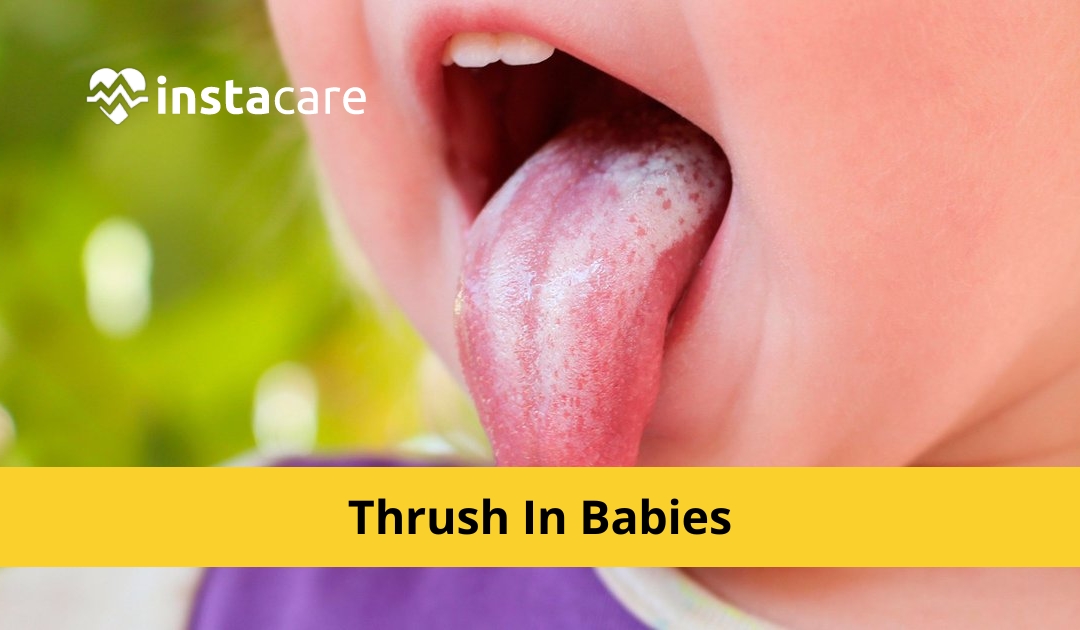When it comes to caring for a little one, parents need to be extra vigilant about their child’s health. One of the things that can cause distress in infants is oral thrush, which is a fungal infection of the mouth and throat. This common condition can range from mild to severe and though usually harmless, it should be taken seriously as symptoms can vary.
Luckily, there are treatments available if your baby does have oral thrush - understanding more about this type of infection will help you recognize the symptoms and get proper treatment for your precious bundle of joy! In today’s post we will go into detail on what oral thrush is, its potential causes, identifying signs and possible treatments.
What is oral thrush?
Oral thrush is a common fungal infection of the mouth caused by a type of yeast known as candida albicans. It’s more common in babies, due to their immune system being weaker when compared to adults. In older children and adults oral thrush is often caused by taking certain kinds of antibiotics, steroid treatments, or by having an impaired immune system from serious illnesses such as aids or cancer.
Symptoms include white patches in the throat and mouth that can be seen as well as tasted, cracking and soreness at the corners of the mouth, loss of taste, pain when swallowing food and drinks, redness inside the mouth, and dryness. Diagnosis is usually made with help from a healthcare provider through visual inspection followed by possible cultures taken from samples collected in the oral cavity. Treatment usually involves antifungal medicines prescribed by a doctor to help clear up oral thrush.
Symptoms of thrush in babies
Oral thrush in babies is a common infection that develops from an overgrowth of naturally-occurring fungus. Babies who are exposed to antibiotics, bottle feeding or those with weakened immune systems are most prone to oral thrush. Symptoms may include white patches on the tongue, cheeks, gums and roof of the mouth, as well as redness or soreness in the mouth and tongue.
It can also cause a burning sensation when your child eats or drinks, a decreased appetite, irritability and even fussiness at feedings. If you notice any of these symptoms in your baby it's important to visit your doctor for an examination and diagnosis, as oral thrush left untreated can spread to other parts of your baby’s body.
View More: When Will Your Babys Eyes Change Color
What causes thrush in babies?
Thrush is an oral infection caused by a type of yeast fungus, and oral thrush in babies can be a common occurrence. The most common cause of oral thrush in babies is poor oral hygiene or the presence of antibiotics which make the mouth environment more prone to yeast overgrowth.
Also, incorrect bottle use could be a potential cause; droplets left on nipples or pacifiers might remain after cleaning and provide perfect conditions for oral thrush to thrive. It's important to be aware of the reasons why oral thrush might occur so that it can be prevented if possible and treated quickly if it does arise.
Treatment for thrush in babies
Oral thrush in babies is a common fungal infection caused by excess oral candida growth. If left untreated, oral thrush in babies can cause discomfort and distress for the infant. Treatment often involves antifungal medications or oral suspensions taken orally or rubbed into the affected area. It's important to be consistent with the treatment because if only half of it is completed, oral thrush can come back.
Other treatments include oral probiotics, which are thought to help restore balance by competing with fungi for food sources. Mothers who think their baby has oral thrush should seek medical advice from a doctor and follow the recommended course of treatment. As oral thrush can recur, continuing treatment for several days after symptoms have cleared is suggested to prevent any further infection.
How to prevent thrush in babies?
Preventing oral thrush in babies often requires the same methods used to avoid any fungal infection. Encourage good oral hygiene practices, such as cleaning your baby’s gums and teeth after each meal, especially before bedtime. Keep oral objects such as pacifiers and bottle nipples clean.
If bottles are used for milk or formula, it is recommended to sterilize them with boiling water between uses. If a baby takes antibiotics, moisturize their mouth regularly with oral rehydration solution to combat the dryness which can cause oral thrush. Make sure the baby takes all prescribed medications and finishes antibiotic treatments fully; this helps ensure that all bacteria and fungus is eliminated from their system, reducing the risk of oral thrush reappearing due to organisms already present in the body.
View More: Sleep Regressions in Babies Signs Causes And Ages
Conclusion
In summary, oral thrush is an infection in babies that can have painful and uncomfortable symptoms. The most common cause of this infection is the candida fungus, which lives in the mouth, throat and intestines. If your baby has any of these symptoms, it's important to recognize them right away and make sure to get medical help as soon as possible. With early recognition, you can quickly get your baby back on the way to feeling better.
Taking time to research will also help you understand how to prevent this common infection from returning in the future. It’s important to remember that with patience and care, your little one can heal from oral thrush without complications. Listening carefully for signs often makes a huge difference when giving a prompt diagnosis; however if needed seeks out medical attention for the best success in treatment and recovery!
If you want to consult with the best pediatrician in Pakistan, book an appointment through InstaCare or you can call helpline number 0317-1777509 for assistance to find the right professional for your concerns.











